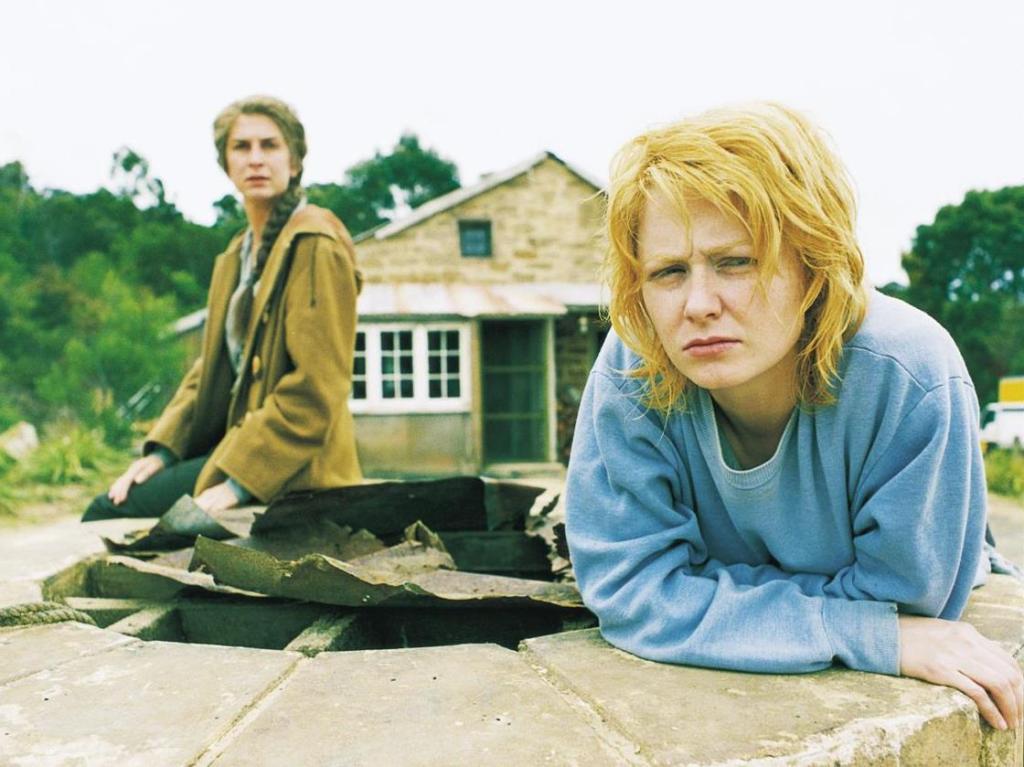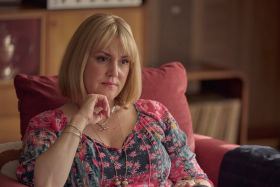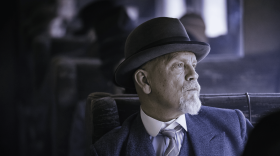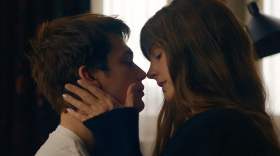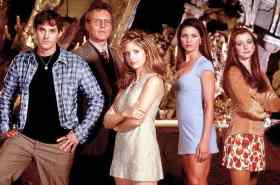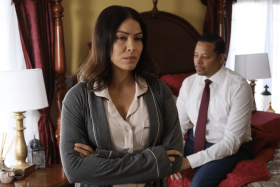Pamela Rabe and Miranda Otto in The Well (1997). Supplied.
You’ve got to be a special kind of film nut to launch a new festival with a barely known 16mm black-and-white silent Australian film, and to play it in the dungeon of Melbourne’s Treasury theatre. That’s exactly what the founders of the Melbourne Women in Film Festival (MWFF) did back in 2017, screening the The Cheaters, the 1929 self-funded film made by sisters Paulette and Isabel McDonagh, two prolific female filmmakers rarely talked about in Australian cinema history (though perhaps that’s changing as the NFSA just recently restored it).
Three years later, the Melbourne Women in Film Festival is about to have its third outing, from 21 – 24 February, with four venues across the city at ACMI, RMIT Cinema, the Lido and Palace Kino. Having grown from a two-day minifest to a four-day event, it’s bigger, brighter and better funded, with assistance from the City of Melbourne and Film Victoria. But there’s still a zany bravery about the festival’s opening night offering: three short films instead of the usual feature.
‘Our theme this year is Dark Delights, with a focus on genre and dark stories,’ said Dr Sian Mitchell, talking to Screenhub. She is one of the four young film academics who started the festival. ‘We had trouble finding the right kind of feature with a celebratory party feel for opening night, so we decided to go with a program of three shorter ones, which actually allows us to showcase more work.’
It’s an intriguing collection to be sure, with a strong focus on the past. First up is Jub Clerc’s 9-minute award-winning Indigenous horror film, Storytime (2006), about two Kimberley kids who wander into the mangroves at sunset only to find that the campfire stories of the ‘Gooynbooyn Woman’ may not be a myth after all. Then there’s ceramacist Margaret Dodd’s 1979 feminist art film, This Woman is not a Car – a 23-minute surreal treat about a woman who pulls over at a service station and experiences a nightmarish assault by car fetishists. Finally, on show is Susan Lambert’s On Guard (1984), a ‘boldly feminist’ 50-minute film about four women teaming up to sabotage a biotech company’s supercomputer.
Raising awareness and celebrating craft
Mitchell, who is the MWFF’s Festival Director, has been teaching for ten years at the SAE Creative Media Institute in South Melbourne, where there are two intakes of students each year. She says these students have a very low awareness of Australian filmmakers in general, and female filmmakers in particular. This was part of the impetus for founding the festival.
Mitchell came up with the idea, roped in Deputy Director Kirsten Stevens, and then coordinators Whitney Monaghan and Janice Loreck. The four women all knew each other from their time doing their PhDs at Monash University, and Professor Therese Davis, Head of Film and TV Studies at Monash is on the festival’s small board, along with Emma Jenken, Hari Mofis, Vyshnavee Wijekumar and producer Leanne Tonkes.
‘We wanted to merge the education side of things with the screen culture side of things in Melbourne,’ Mitchell said, ‘as well as raising the profile of Australian women who are working in film as role models for our students.’
While this all sounds very worthy and dry, Mitchell sounds a lot more fun in person, citing Rachel Perkins’ Radiance (1998) and Gillian Armstrong’s Starstruck (1982) as key moments for her as a young film viewer and fan of American films like Girls Just Want to Have Fun.
Incidentally, the festival will close on Sunday 24 Feb with a screening of Perkins’ 2014 documentary Black Panther Woman, a portrait of Indigenous activist Marlene Cummins.
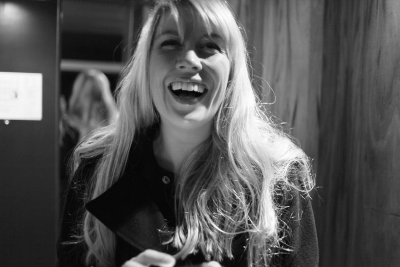
Sian Mitchell, Festival Director of MWFF. Supplied.
Mitchell said she sees one of the core audience for the festival as being women wanting to work and progress in the industry in creative, technical and advocacy roles. ‘We want to highlight all the other sorts of roles that women are performing in the industry as well as directing – cinematography, editing, sound design, lighting and producing, and of course teams of women who are all working together.’
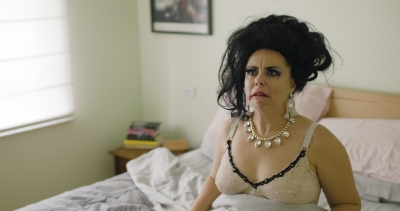
Image: Angie Black’s The Five Provocations.
Digging up gems
The 2019 program includes several collections of contemporary women’s shorts and documentary shorts, and some current feature films, including Mairi Cameron’s The Second and Angie Black’s experimental The Five Provocations. A special late night screening will show Ursula Dabrowsky’s 2014 horror film Inner Demon.
But according to Mitchell, a key strand of the festival will always be devoted to ‘digging up archival gems and saying, “hey these existed and we should pay attention to them again.”’
Last year’s restored classic (and opening night film) was Shirley Barrett’s Love Serenade (1996), which was accompanied by Barrett, producer Jan Chapman and editor Denise Haratzis. There was a strong focus on that film’s unique sound design. This year, the restored classic is Samantha Lang’s 1997 gothic thriller The Well, starring Pamela Rabe and a very young bleached-blonde Miranda Otto.
Based on Elizabeth Jolley’s novel, The Well is a pitch black film, despite its unnervingly bleached cinematography and an undercurrent of stubborn humor. It wasn’t a critical favourite, despite being nominated for the Palme d’Or at Cannes and winning three AFI Awards, but it does fit perfectly with this year’s dark festival theme. Samantha Lang, who is still very much working as a filmmaker, and is the current President of the Australian Director’s Guild (ADG), will be attending for a post-screening Q&A. As Mitchell noted, it will be interesting to hear her discuss the film with hindsight, along with her decision, together with producer Sandra Levy, to undertake restoration of the film themselves when the NFSA declined to do so.
Lest you need a little extra incentive to see The Well, it will screen alongside Jennifer Kent’s 2005 short film Monster, which went to more than 50 festivals as well as evolving into the blockbusting horror sensation that was The Babadook.
Taking the leap
It’s perhaps understandable that when have four academics running a film festival, the press release is chock full of familiar depressing statistics about gender inequality in the Australian film industry. Mitchell said that one of the intentions of the festival is to build program strands that might help to combat this, or at least take the conversation to another level. One such event will be Taking the Leap: from shorts to features (ACMI, Sat 23 Feb, 2,30pm) with panelists including Alena Lodkina, Jessica Leski and Angie Black. Another event will be the Film Vic supported public forum, Leading the Way: Empowering Women’s Leadership in the Screen Industries (ACMI, Thursday 21 Feb, 3pm) with panelists including Penny Smallacombe, Head of Indigenous at Screen Australia. There are other workshops and talks, and a Critics Lab aimed at mentoring a new generation of film criticism.This is the pet project of Whitney Mohaghan, and as Mitchell said, this program was being run ‘for the very same reasons that we’re trying to support women filmmakers, in that screen criticism is so dominated by male voices. ‘
Asked if she was weary of the same old problems and conversations, Mitchell admitted, ‘we are stuck in these cycles. You look at the affirmative action that happened in the 80s and there were a lot of similar conversations, and then in the 70s a massive upheaval in terms of the establishment of AFTRS and what feminist film collectives were doing on the other side of that, and you do hear a lot of similar arguments now. I do think that there is a slight shift towards a more intersectional conversation, around equality, not just of women, but women of colour and women with queer backgrounds.’
And so the conversation continues, as it must.
Director’s Picks
We asked Mitchell to identify three key events in the festival program that she’d recommend from a filmmaker’s perspective. She wanted four, and here they are:
- Taking the leap. ‘This would be good particularly for early career filmmakers.’
- The public forum. ‘I’d recommend this in terms of industry focus for middle to late career women and those looking for ways to get into leadership.’
- The Well. ‘Having Sam Lang there and talking about her career and looking back at that film would be worthwhile for filmmakers to see how that process has moved for her.’
- Mairi Cameron’s The Second. ‘We have the producer, Leanne Tonks and actors Susie porter and Rachael Blake. It’s a film that you could look at as the opposite of The Well, in terms of contemporary genre filmmaking for women and also the fact that it’s STAN’s first feature, so looking at other platforms for women filmmakers to use that might extend outside of the traditional theatre space.’
